When I attended the Abbeville Institute’s Secession Conference in Dallas back in November 2018, most people I know in “normal” life thought, “Sure, she’s a nice gal and all, but man, does she have some wacky ideas!” Well, I don’t think anyone’s rolling their eyes anymore.
In liberty parlance, secession simply means the humane act of severing political ties to which one has acceded. Instead of fighting over the keys to the kingdom, as is the case in a centralized mass democracy, secessionists simply say, “We don’t want a king. We’d rather manage our lives through smaller-scale, more localized governance.”
But really, the “king” analogy doesn’t quite work in critiquing the modern state. Even “the medieval king did not have sovereign power over individuals in his territory” the way the empire wields its unchecked power today, explains Abbeville co-founder and president Dr. Don Livingston.
“He had to share that power with a number of independent social authorities,” like the nobility, principalities, and the church, from whom the king had to get consent for rule within his realm. “Not even an absolute monarchy in the 17th century … could impose an income tax, or create a public debt, or order universal conscription of troops.”
What makes the modern state different from its ancient and medieval counterparts is its immensity in both size (territory) and scale (population), as well as the fact that it too has social authorities, but they are very much dependent institutions, requiring state authorization. This is how we get to the point of governments shutting down churches as “nonessential” and cops enforcing those absurd edicts. Centralized powers don’t like competition.
“If bigness invites rule by dictator, dictators also like bigness,” wrote law professor F.H. Buckley in his book American Secession. “With greater size comes grander palaces and more power to push neighbors around” since “big states are more corrupt … there’s a greater sense of solidarity in smaller states, such as Finland, where people are less diverse and more trusting of others.”
Americans used to understand this, as new states were born through secession and the Founders’ understanding that republics must be small in order to work. For instance, Kentucky was carved out of Virginia, Tennessee out of North Carolina, and Maine out of Massachusetts.

During its federal flourishing, the US was known as the “mother of new nations.” Like the cantons of Switzerland, divisions of land, size and scope, representation, and diverse populations helped check consolidation of power, as well as promote culture, homogeneity, and liberty.
As the Mises Institute’s Ryan McMaken explains, “If American federalism were like Swiss federalism, there would be 1,300 states.” Sure, there aren’t that many now, but that doesn’t mean that states or regions or peoples can’t create their own “empires of liberty” very soon.
The War of Northern Aggression dealt a huge blow to America’s decentralist tradition, but the kicker was a reinterpretation of the 14th Amendment some 50 years after its ratification, when Progressive-Era schemers began to claim the wording of this “Civil War amendment” codified federal supremacy, giving us such gems as the income tax, prohibition, the draft, and every welfare-warfare program to come along since the New Deal.

Known as Incorporation Doctrine, it’s a political bludgeon that empowers the bureaucrats and oligarchs, destroys community and culture, increases violence, atomization, and displacement, and decreases mutual benefit, comity, and trust. Simply put, centralization is “antithetical to virtue,” as law professor Allen Mendenhall says.
“Larger states, far from providing peace, merely provide larger wars, having more human and material resources to pour into them,” wrote Sale. Smaller states can band together to make “temporary confederation and mutual defense … in the form of treaties and leagues and alliances.”
Just as the 13 Southern states formed the Confederate States of America to resist “large-scale aggression,” states like Rhode Island, Maine, and Florida, and even counties like Graham, NC, have in recent days been guarding their borders from out-of-town interlopers. The senate in Pennsylvania partially lifted the lockdown in their state, overriding the governor’s one-size-fits-all virus measures, and approved a bill giving county governments even more leeway in implementing their own community-specific “reopen” plans.
Like many other states, the citizens of Michigan are co-opting the chaos and banding together to resist their governor’s extreme shut-down laws, asking why the whole of a largely suburban and rural state must live under Detroit-specific laws. So far, four county sheriffs are vowing not to enforce the emergency orders of the governor, who was aghast that some protesters waved the Confederate Battle Flag. Turns out some of them Michiganders have a clue.
Governors on the east and west coasts are creating regional pacts, dare I say, “confederations,” to work together in reopening their states. Hell, Gavin Newsom declared California a “nation-state.”
When a Bloomberg Opinion writer states that “Federalism has always had rough spots, but conflict is rising and resolutions are not” so “nullification … could be ripe for a come back,” or the New York Times defends states’ rights, or Reuters pushes for the “Great American Breakup,” or a contributing editor at The New Republic calls for “separating blue states from America,” you know we’re on the precipice of something revolutionary. Centralization is under threat, and it’s about damn time.
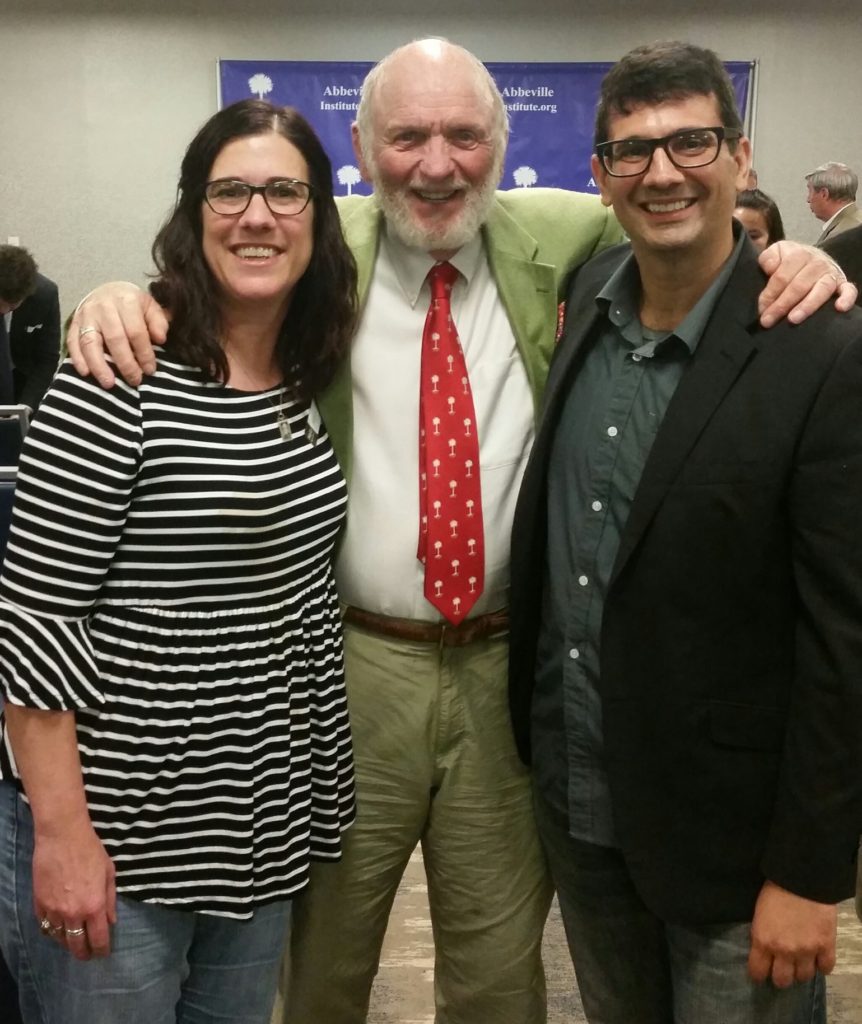
Funny thing is, it’s the ideology of a “republic, one and indivisible” that has propelled us to this current historical moment. After all, it’s not the quarantine that is separating us or causing a lack of “national” solidarity. It’s that there is nothing that really unites “us,” other than division.
A good testimony to this is lockdown communities in Italy “singing in solidarity.” These quarantined people could be heard spontaneously crooning traditional Italian ballads and the country’s national anthem – an illustration of a people, a shared heritage, and a lived culture. It was a hard sell in NYC, and when it did catch on, well, we got Bon Jovi.
America is too big and too diverse to be a “nation.” We’re a disparate patchwork, cobbled together by secular fictions, utopian fantasies, covetousness, and hubris. We’re a centralized managerial state – a geographic and geopolitical blob that has only grown, but can never shrink. Till now.
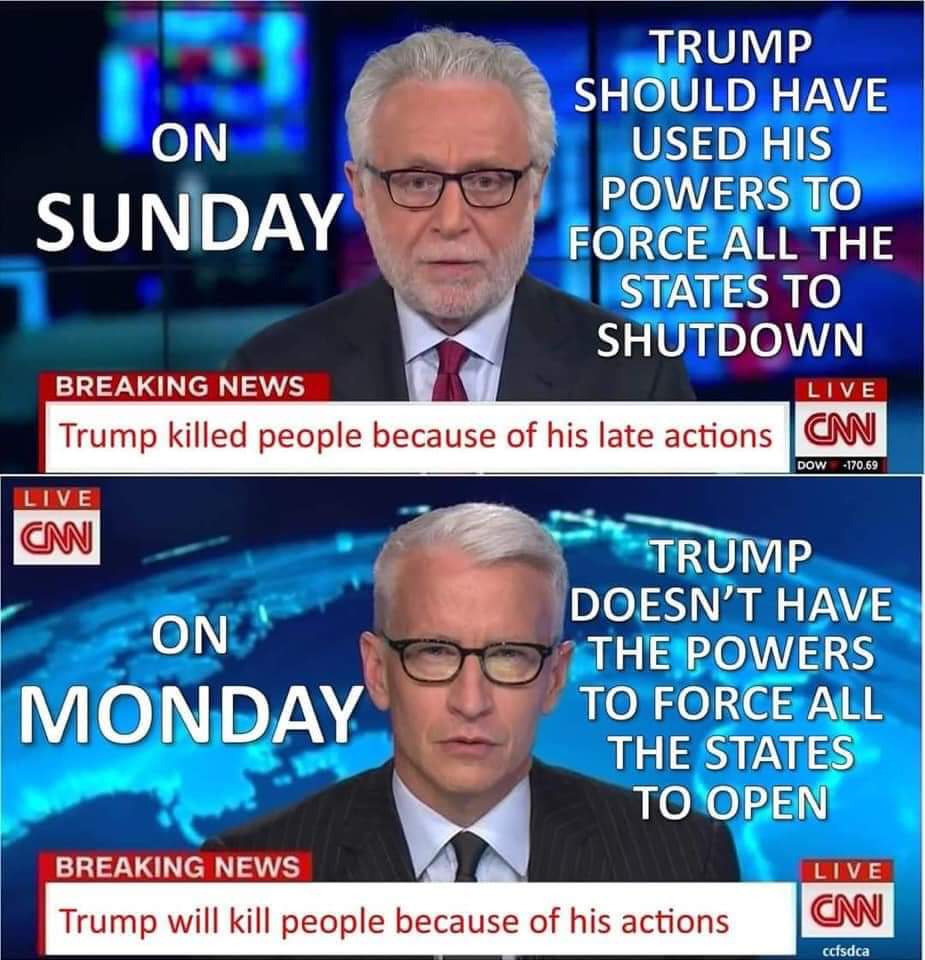
Forcible political unification has a way of ruining a people and wrecking a civilization. From the centralizing force resulting from the War Between the States to the community-killing coercive measures of equality, heterogeneity, mass democracy, legal plunder, and “acquired rights,” it’s apparent to anyone with eyeballs that diversity is not our strength. And the havoc wreaked by coronavirus has only magnified this inescapable truth.
In a pre-pandemic interview, economist Hans-Hermann Hoppe remarked that because “political and monetary centralization has proceeded unabated … a severe economic meltdown is in the making.” Bear in mind, he said this before our $6 trillion COVID-19 “stimulus” and “recovery” packages.
Now, combine that with the fact that “most Western countries have been thoroughly dehomogenized by immigration policies favoring multiculturalism,” which has “massively increased as a fallout of endless US wars and military adventures,” and it’s no wonder that smart people are embracing decentralization and localism. Finally!
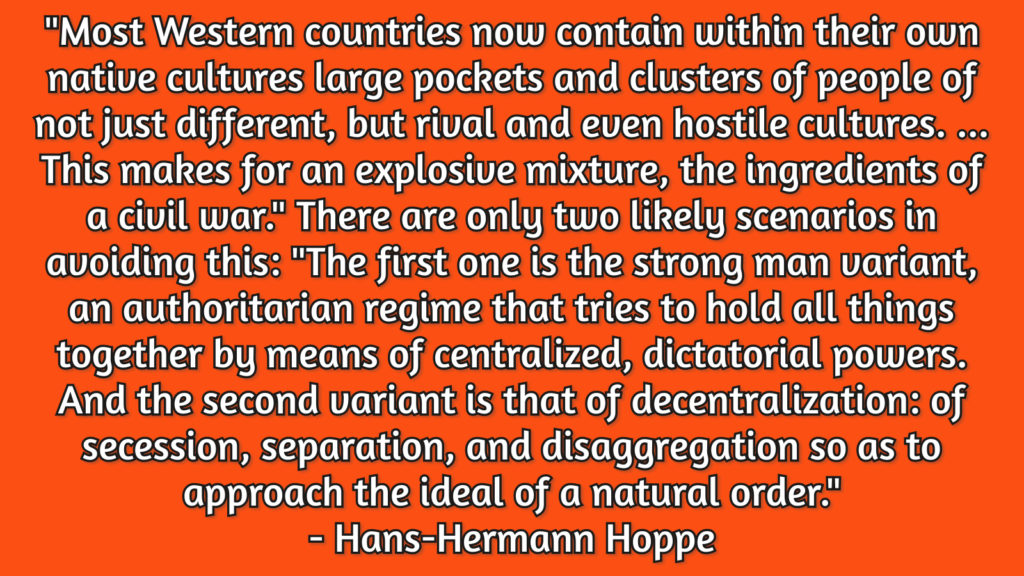
Recently, Buckley wrote that coronavirus could hasten secession. “Since Donald Trump’s election, a poison has entered America’s soul. It’s driven us apart and made the idea of a breakup more inviting.”
Really though, coronavirus has made unavoidable the “explosive mixture” of which post-modern America is made. Trump’s win was just the “beginning of the great push back,” as I’ve heard Mises president Jeff Deist say. Trump simply brought to center stage the division that had already been festering and coming to a head for 150 years. Thanks to pandemic-mania, it’s about to pop.
Globalism is just centralization on a mass scale. An outgrowth of modern imperial hegemony, it’s one giant liberty-sucking, money-stealing, war-starting parasite.
Interestingly, it’s the globalists – the one-world elites, technocrats, career politicians, crony capitalists, multinational corporate kings, and billionaire social-engineers – who are running scared these days. So, don’t fear their rhetoric.
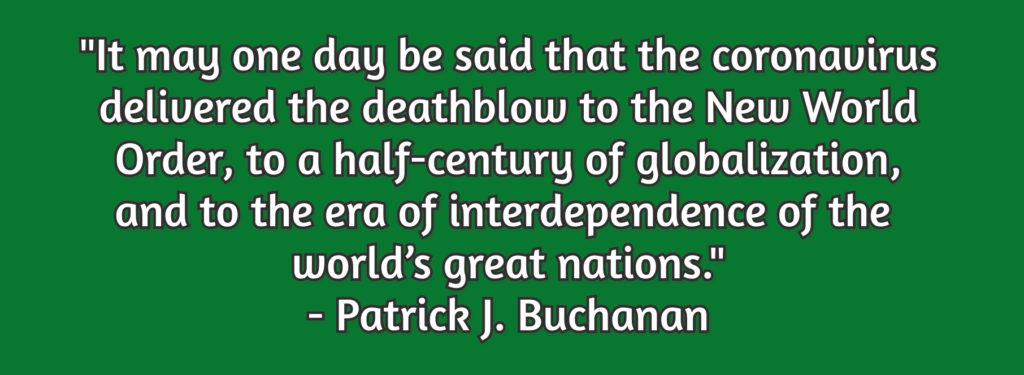
“Will the coronavirus end globalization?” they ask. It’s a “gift to nativist nationalists and protectionists” and a “gift to nationalists” and could “boost protectionism,” warn the very people who assured us there was no danger (economic, cultural, and physical) to offshoring every damned thing. When fellows at the “Centre for International Governance Innovation” (yikes!) are triggered because globalism failed and nationalism is on the ascent, this is good news.
When Henry Kissinger is shaking in his bureaucratic boots that the coronavirus crisis is threatening “the principles of the liberal world order” … and “the world’s democracies need to defend and sustain their Enlightenment values,” people should rejoice. The “cracks in globalization” are on full display. Its comfortable fiefdoms are threatened now by reality.
For instance, Trump has already de-funded the WHO, which explicitly advised against travel restrictions, criticized countries that implemented travel bans, and lectured the world that “viruses know no borders.” Many countries ignored the advice, thankfully, grasping the fact that borders are a line of defense against invasion, whether viral or human. More and more people are realizing that the “global village” was a ruse.
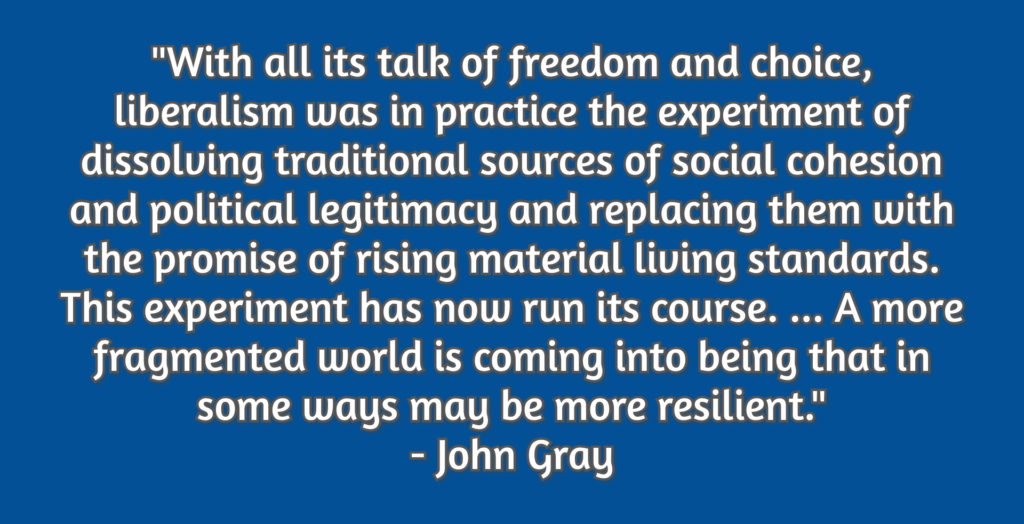
Anti-EU sentiment is on the march in Europe. Countries like Italy are wanting to secede from the pan-continental institution. COVID-19 “shatters the facade of the EU.” European leaders warn that the virus could “breakup” their carefully crafted ruling class. The nations of Europe are “rising up” and demanding their sovereignty back.
When the ironically named The Nation sees “traditionalism” as fascistic and fears that the “obscure yet powerful ideology” may fill this watershed moment, you know things are looking up for secessionists, small-government advocates, and down-home conservative folk. The leftist losers are losing their minds, y’all.
Localism isn’t perfect, but it’s much less likely to create wars and other social discord, and when it does, they are much less frequent and typically smaller, shorter, more manageable affairs. Like Jeff Deist rightly explains, “All crises are local.”
My late friend Matthew Silber designed the graphic at top. It speaks to the idea that secession is for everyone, but centralization puts up road blocks to obscure the big picture: that it’s the oligarchs (the managerial deep state and the globalists) vs. citizens. They want us to feel exploited so we demand a government fix to every problem. They want us to spend our resources, time, and energy lobbying for a piece of the pie so that centralization itself becomes a self-fulfilling prophecy.
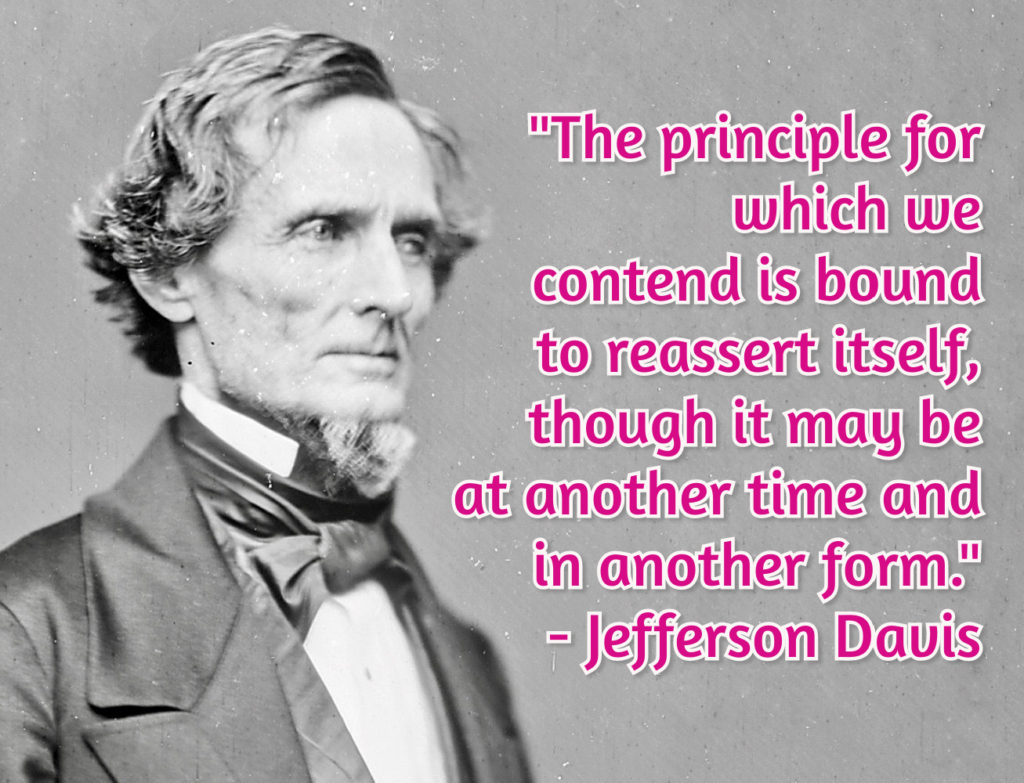
When I saw Marcus Ruiz Evans, founder of CalExit, speak at the Dallas conference, he commented, “America doesn’t represent California values.” The room full of Southern-without-apology stalwarts agreed, but nor does California represent Southern values and tradition. Nor do big cities speak for rural areas. Or country folks speak for urban ethnic enclaves. Multiculturalism is anathema to happy, healthy people in a centralized state, but it just fine and dandy in a confederation born of peaceful separation.
Evans knows that diversity by force only feeds the beast and creates aggrievement as an identity. Wouldn’t it be better to voluntarily associate with like-minded people and create independent institutions and high-trust communities that foster your beliefs while simultaneously deterring the Leviathan?
Who wants fake, feckless unity when you can have the real thing? Why not nurture a human-scale social order that has produced flourishing throughout the ages? Let’s actually know and help our neighbors and build up local bonds, instead of begging for scraps in a system whose aim is to tear us all down.
The illusion that we’ve ever in our lifetimes been “a free people” is starting to sink in with those who had bought into the big lie that bigger is better. Let’s recalibrate, prioritize, break our bad habits, and reorganize. We have been blessed with a reset button, so now’s the time to press on with a much-overdue and highly necessary course correction. Secession is the answer.
Let’s work to turn the “ratchet effect” on its freakin’ head. Let it be us, normal, everyday people, who do not let this crisis go to waste.
Originally published on April 17, 2020, at DissidentMama.net.
Truth warrior, Jesus follower, wife, and boymom. Apologetics practitioner for Orthodox Christianity, the Southern tradition, homeschooling, and freedom. Recovering feminist-socialist-atheist, graduate of the University of Wisconsin-Madison, and retired mainstream journalist turned domesticated belle and rabble-rousing rhetorician. You can read her blog at Dissident Mama.




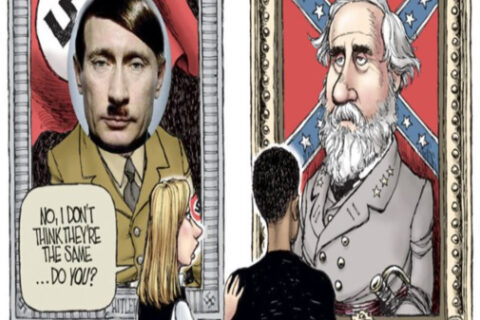

The whole thing is going to come apart, one way or the other. A peaceable separation would be best for everyone but there is no way the Left is going to let us leave peaceably.
Agreed, I pray for peaceful separation, but know it’s probably not likely. Leftists are an irksome and totalitarian bunch, as we know. But by hook or crook, I believe it’s all going to come crumbling down, and Southerners who prepare will be ready, while puritanical-progressives who produce nothing of value and their foot soldiers who need big-daddy gov’t to wipe their butts will be like a deer caught in the headlights.
I agree with Mr. Sido on this. No way in Hell the left is going to let us go in peace. I have mentioned before this tendency of the Yankee to favor ‘peaceful separation’ until he doesn’t.
I ain’t skeered.
Not only will the left not allow separation any more this time than the last, but even if (((they))) did, it wouldnt be a year before we were at war again. See, the left and their pet ‘minorities’ cannot maintain any sort of existence – above bare sustenance at best – on their own – they rely wholly on ‘US’ for food, running water, electricity, mainteneance of infrastructure etc. Perfect example is S Africa – whilst now starving, there are a total of 6 functional fire trucks in the whole country out of the hundreds. It would be no different here. Should california exit, within 6 months they would be streaming over the border looking for food, water, jobs, car parts etc.
Yes, secession is a great idea, but eventually, they will have to be run off the land for it to stick.
I agree with the cautions and facts you shared, but I still think separation (or simply the falling apart) of Murica may happen whether anyone likes it or not. It could be the result of civil war, the impetus for civil war, or we could get a strong man, like Hoppe says. But with the system being exposed as the feckless farce that it is and enforcement being threatened, especially at some local levels, I think “unity” just won’t be in the cards as a realistic and effective option. I believe tribalism and alliances will simply become a necessity for survival. People either take part or they die: that’s a pretty good incentive, I must say, even for normies.